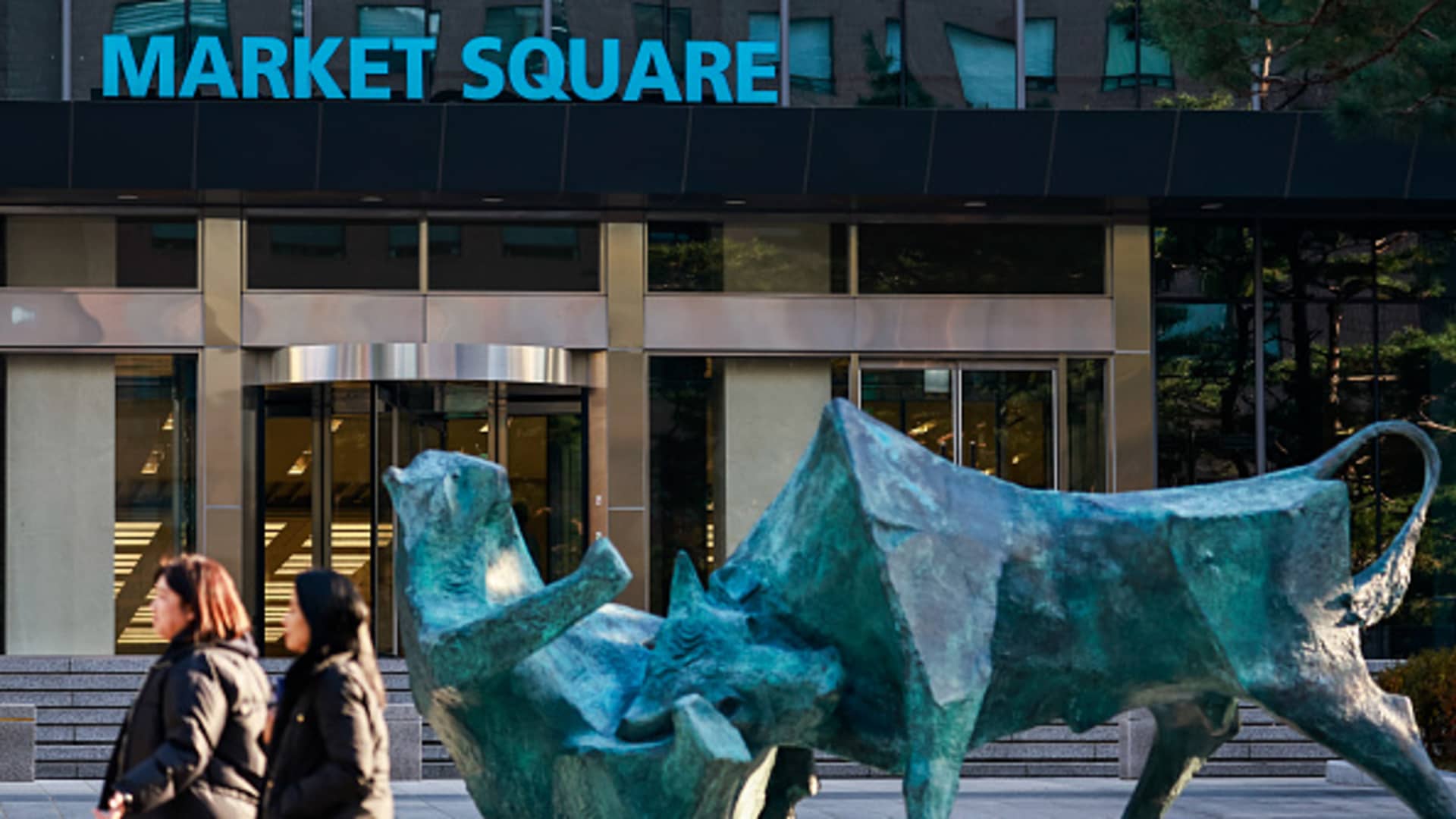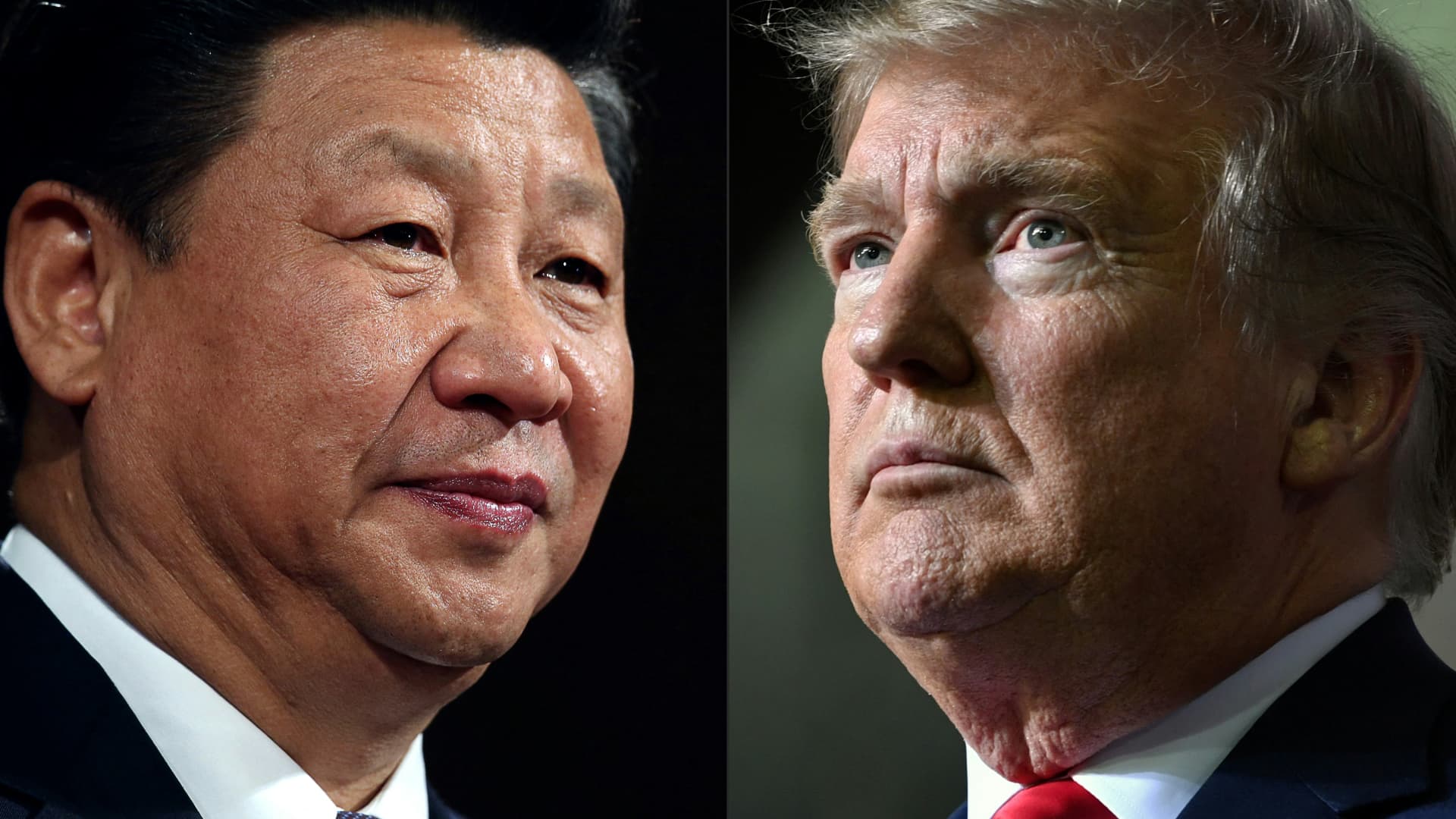People walk past the Korea Exchange (KRX) building in Seoul, South Korea, on Dec. 9, 2024.
Daniel Ceng | Anadolu | Getty Images
South Korea’s central bank cut rates by 25 basis points Tuesday to their lowest since August 2022, as it strives to stimulate a slowing economy.
The Bank of Korea cut rates to 2.75% from 3%, in line with expectations from economists polled by Reuters, trimming rates for the third time in four meetings.
The decision comes as South Korea continues to grapple with political uncertainty over the impeachment trial of President Yoon Suk Yeol.
The country’s Constitutional Court will convene for the final hearing of Yoon impeachment trial Tuesday, according to domestic media.
Immediately after the decision, the country’s benchmark Kospi stock index was down 0.46%, while the South Korean won weakened 0.2% to trade at 1,431.3 against the U.S. dollar.
Citi in a note earlier this month said that the BOK could favor economic growth over financial imbalance risks as inflation remains steady. While South Korea’s inflation in January climbed to a six-month high of 2.2%, it is still close to the BOK’s target of 2%.
South Korea’s GDP growth in the fourth quarter missed expectations, clocking its slowest expansion in six quarters at 1.2%, according to advance estimates. The BOK attributed the slowdown to weakness in consumption and construction sectors.
The widening of the rate spread between the U.S. dollar and South Korean won has not seen a meaningful bond capital outflow, according to Citi, which sees a “limited negative impact” of weakness in the South Korean won on the country’s financial industry and foreign capital flows.
Min Joo Kang, senior economist for South Korea and Japan at ING, said in a note last week that the political turmoil in Seoul that triggered excessive weakness in the South Korean won has abated.
She also said that inflation would remain within the BOK’s 2% target range this year, which will give it more room to cut rates amid reciprocal tariff threats from the Trump administration.
However, Kang warned rate cuts could accelerate the rise in domestic household debt and property prices.











